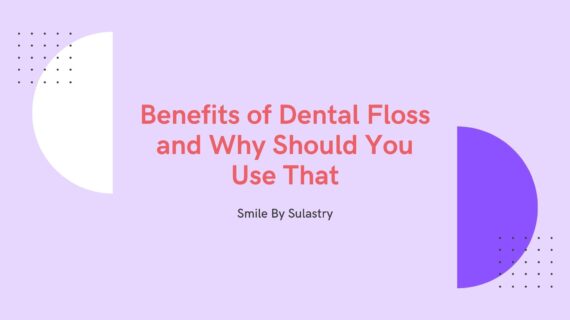Baking soda (sodium bicarbonate) has been a staple in households for decades, used for cleaning, deodorizing, and even as a home remedy for various health issues. One of its most debated uses is as a baking soda rinse—whether for oral health, skin care, or even as a detoxifying agent. But is it truly a miracle cure, or could it be a silent killer with hidden risks?
In this blog, we’ll explore:
✔ The benefits of baking soda rinses
✔ Potential risks and side effects
✔ Scientific evidence supporting (or debunking) its use
✔ Safe ways to use baking soda rinses
Let’s dive in!
What Is a Baking Soda Rinse?
A baking soda rinse is a solution made by dissolving sodium bicarbonate in water. It’s commonly used for:
-
Oral health (whitening teeth, reducing bad breath, soothing mouth ulcers)
-
Skin care (treating acne, soothing sunburns, exfoliating)
-
Hair care (clarifying shampoo buildup)
-
Detoxification (some claim it helps alkalize the body)
But does it really work, or is it just another overhyped home remedy?
The Miracle Cure: Proven Benefits of Baking Soda Rinse
1. Oral Health Benefits
Baking soda is a popular natural toothpaste alternative and mouth rinse. Studies suggest it can:
✅ Neutralize acids – Reduces harmful bacteria that cause cavities (Journal of Clinical Dentistry)
✅ Whiten teeth – Mild abrasiveness helps remove surface stains (Journal of Dentistry)
✅ Freshen breath – Kills odor-causing bacteria
✅ Soothe mouth ulcers – Reduces pain and speeds healing
2. Skin Benefits
A diluted baking soda rinse may help with:
✅ Acne – Acts as a gentle exfoliant
✅ Sunburn relief – Soothes irritation
✅ Eczema and itching – Balances pH levels
3. Hair and Scalp Health
Some people use it as a clarifying rinse to remove product buildup. However, frequent use can strip natural oils.
4. Potential Detoxification Claims
Some alternative health advocates claim that alkalizing the body with baking soda rinses can prevent diseases, but scientific evidence is lacking.
The Silent Killer: Risks and Side Effects
While baking soda rinses have benefits, misuse can be dangerous.
1. Oral Health Risks
❌ Enamel erosion – Excessive use can wear down tooth enamel (Journal of the American Dental Association)
❌ Gum irritation – High alkalinity may cause sensitivity
❌ Altered taste – Can temporarily affect taste buds
2. Skin and Scalp Damage
❌ Dryness and irritation – Disrupts the skin’s natural pH
❌ Chemical burns – Undiluted baking soda can be harsh
3. Digestive and Systemic Risks
❌ Electrolyte imbalance – Excessive ingestion can lead to low potassium, high sodium levels
❌ High blood pressure – Due to sodium content
❌ Kidney stress – Overuse may affect kidney function
4. False Medical Claims
Some believe baking soda can cure cancer or COVID-19, but no credible evidence supports this. Always consult a doctor before using it as a treatment.
How to Safely Use a Baking Soda Rinse
For Oral Health:
-
Mouthwash: Mix ½ tsp baking soda in ½ cup warm water, swish for 30 sec, then rinse.
-
Toothpaste: Combine with coconut oil for gentle brushing (use sparingly).
For Skin:
-
Acne treatment: Make a paste with water, apply for 5-10 min, then rinse.
-
Sunburn relief: Add ½ cup to a lukewarm bath.
For Hair:
-
Clarifying rinse: Mix 1 tbsp in 1 cup water, apply after shampooing (use once a month).
Avoid:
-
Swallowing large amounts
-
Using daily on teeth or skin
-
Applying undiluted baking soda
Conclusion: Miracle Cure or Silent Killer?
Baking soda rinses do offer benefits, especially for oral hygiene and mild skin conditions. However, overuse or improper application can lead to serious side effects.
✅ Use it wisely – Moderation is key.
❌ Don’t believe miracle cure claims – Always rely on science, not hype.
Have you tried a baking soda rinse? Share your experience in the comments!
Booking / teledentistry :
- E-MAIL : 99dentistbali@gmail.com
- WA : 0878-8549-0866
For more artikel :
- https://bradshawfamilydental.com/p/BLOG-81300-2021.3.8-Benefits-of-Using-Baking-Soda-for-Oral-Health-p.asp
- https://maindentistry.com/dental-health/baking-soda-boost-how-long-does-it-take-to-whiten-teeth/
- https://www.colgate.com/en-in/oral-health/selecting-dental-products/is-baking-soda-mouth-rinse-safe-and-effective
- https://www.siloamhospitals.com/en/informasi-siloam/artikel/health-benefits-of-baking-soda-and-its-side-effects
- https://www.personalcaredentistry.com/make-your-own-mouthwash-heres-4-recipes-2/
